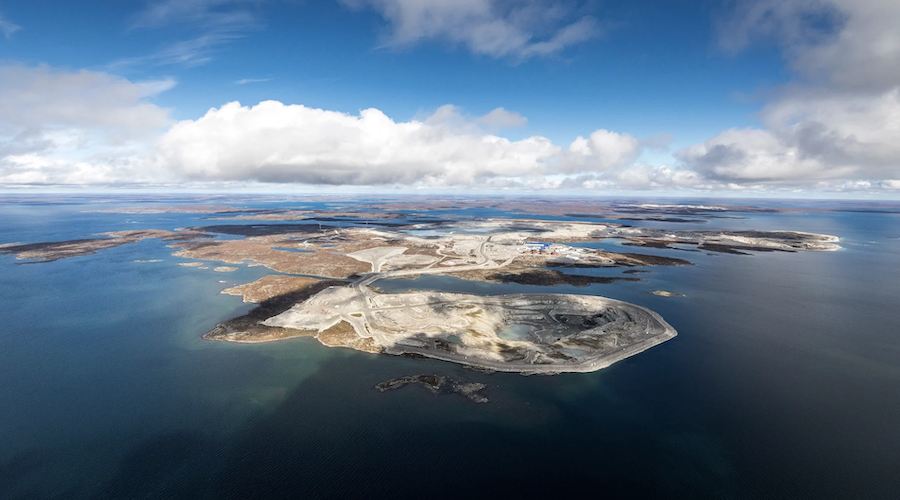Australian Mining takes a look at the changes made to the way Australian mining companies work with Traditional Owners of the lands they operate in, following the Juukan Gorge incident.
In May 2020, Rio Tinto was searching for iron ore at its Brockman 4 mine in Western Australia.
As part of the mine’s expansion, Rio Tinto conducted a blast at Juukan Gorge, situated in the Hamersley Range within the Pilbara region.
The blast resulted in the destruction of Aboriginal heritage sites, including two culturally significant rock shelters.
“One of the shelters had provided evidence of continuous occupation going back some 46,000 years, making it a site of national and international significance,” the Federal Government’s Juukan Gorge interim report said.
The blast at Juukan Gorge took place despite the Puutu Kunti Kurrama and Pinikura (PKKP) Traditional Owners repeatedly stating the site should be protected.
The PKKP People found out about the planned blast in mid-May and issued an urgent request to halt the detonation five days prior.
Rio Tinto received ministerial consent for the blast in 2013. This was due to the Aboriginal Heritage Act 1972 not allowing for consent to be renegotiated based on new information.
“The culture and institutional structure within Rio Tinto did not adequately prioritise Indigenous heritage,” the Federal Government’s Juukan Gorge interim report said.
“Indeed, it would appear that Juukan Gorge was effectively destroyed from the moment Section 18 consent – allowing for the disturbance, damage or destruction of sites – was granted in 2013.”
The rock shelters at Juukan Gorge were ultimately destroyed on May 24 2020, igniting public outcry.
Since then, several changes have been made on a legislative and operational level.
Legislative change
Rio Tinto chief executive officer (CEO) at the time, Jean-Sebastien Jacques, apologised for the destruction of Juukan Gorge and said the company would cooperate with the Northern Australia inquiry and support WA’s reform of the Aboriginal Heritage Act 1972, which was led by WA’s Indigenous Affairs Minister at the time, Ben Wyatt.
In December 2020, the Federal Government’s ‘Never Again’ report was released, highlighting “the disparity in power between Indigenous peoples and industry in the protection of Indigenous heritage, and the serious failings of legislation designed to protect Indigenous heritage and promote Native Title”.
Recommendations from the report included Rio Tinto committing to:
- a moratorium on mining in the Juukan Gorge area
- rehabilitating the Juukan Gorge site
- conducting a review of all agreements with Traditional Owners
- committing to a stay of all actions under section 18 of the Aboriginal Heritage Act 1972
- pledging a voluntary moratorium on section 18 applications under the Aboriginal Heritage Act 1972
- returning all artefacts to the PKKP People.
The WA Government introduced the Aboriginal Cultural Heritage Act 2021 to prevent similar incidents to Juukan Gorge from happening in the future. The Bill came into effect in July 2023.
Under the legislation, WA landowners were required to check if cultural heritage sites were present on the land before undertaking anything which may compromise the sites.
However, following public workshops, education sessions, and consultation with key stakeholders, the WA Government decided to revert back to the Aboriginal Heritage Act 1972, with some key amendments.
The new amendments to the restored legislation include:
- The newly formed Aboriginal Cultural Heritage Council taking on the tole of the committee that was established under the 1972 Act to make ministerial recommendations
- Proponents and Native Title parties will have the same right of review for Section 18 decisions, with clear timelines and an ability for the Premier to call-in a decision of ‘State significance’, to act in the interests of all Western Australians
- When a Section 18 has been approved, making it a requirement for the owner to notify the Minister of any new information about an Aboriginal site.
Operational change
Rio Tinto has also introduced measures to increase transparency around its approach to cultural heritage protection via communities and social performance practices.
As of October 2022, Rio Tinto has 500 CSP professionals working on 60 operations across 41 countries.
“In 2021, the board conducted a joint exercise with the executive committee to learn the lessons from the destruction of the rock shelters at Juukan Gorge, and the Group’s response to the tragic events,” Rio Tinto said on its website.
Following the exercise, Rio Tinto committed to “promoting an inclusive, open and transparent culture that empowers people to raise and escalate concerns on operational and ethical issues” and “applying a more values-driven approach to guide decision making” through care, courage and curiosity.
The company also created a Juukan Gorge Legacy Foundation in 2022 to provide financial support to the foundation to progress major cultural and social projects and established a committee to facilitate communication about the desired rehabilitation of Juukan Gorge, among other initiatives.
The PKKP Aboriginal Corporation reflected on the Juukan Gorge incident on its five-year anniversary.
“What happened five years ago will never be forgotten by the PKKP people but to ensure such tragedies do not happen again we continue to work with Rio Tinto and other miners to implement effective and fair co-management agreements for their activities on PKKP Country,” the PKKP Aboriginal Corporation said.
“We have taken control of heritage management on PKKP Country so that we are doing the work of the government and that our agreements make up for the flaws of the legislation.”
Present day
The First Nations Heritage Protection Alliance and the Minerals Council of Australia (MCA) are calling for the Federal Government to prioritise cultural heritage reform.
“Traditional Owners and the mining industry have done the hard work to find common ground and now it’s over to the (Federal) Government to honour its commitment to our people,” First Nations Heritage Protection Alliance co-chair Leon Yeatman said.
“We may not agree on everything all the time, but on this, we agree it is time to act. These cultural sites are not only sacred to Aboriginal people, they should also be sites of national pride as proof of the world’s oldest continuous culture.
“The distress caused to the Puutu Kunti Kurrama and Pinikura People by the destruction of the caves must be recognised and action finally taken so this cannot be repeated.”
Yeatman pointed to identifying those who speak for Country on a Federal level as a good starting point.
“This will provide protection and certainty for community and industry so business can create new economic assets and opportunities, while protecting our cultural assets,” Yeatman said.
MCA CEO Tania Constable said the mining industry has used the last five years to regain trust from Traditional Owners.
“There is broad agreement on the way forward, and we are now looking for the (Federal) Government to show leadership and work alongside the MCA and the First Nations Heritage Protection Alliance to provide a once in a generation change and see this as a genuine opportunity for healing,” Constable said.
Subscribe to Australian Mining and receive the latest news on product announcements, industry developments, commodities and more.




